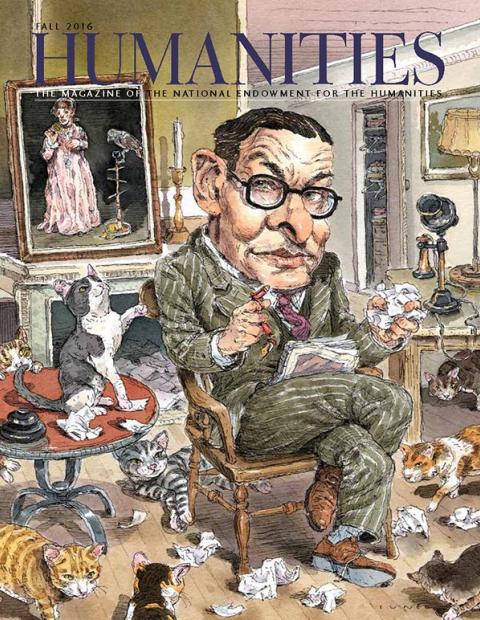Here is what I learned from our recent readers’ survey. One, our print readers really like interviews. Even as these pieces have faded from regular rotation in the magazine, people still strongly associate them with Humanities magazine.
As it happened, I had an interview, or rather an interview-like conversation, among a group of veterans, already teed up for this issue, but I can now add that there are more to come.
Two, our print readers want our magazine to be less like what I call an oldspaper. They want more of the new in Humanities magazine. I know it sounds good, but this is a little trickier.
On the one hand, our primary area of concern, the humanities, involves much that is past and, by definition, old. History is the one constant in almost all of the projects funded by NEH. And yet, like the coastal plain, where land meets water, there is an area within the humanities where the new and the old come together. It is still a ways off from the nowiest of the now, but spending more time there could deepen our understanding of major debates playing out in the world today.
On our website we have planted many stories along this border separating today and yesterday: One about the connection between a scholarly project on the Enlightenment and the Panama Papers exposé, another on H. L. Mencken’s role as the dean of political convention journalists in the first half of this century, and so on.
And we can provide context to current events in our print magazine as well, as we do so here with a piece by Peter Gibbon about the two most important education thinkers alive today: E. D. Hirsch and Howard Gardner, who represent not only opposing views on how to teach America’s children but on how to understand American society.
In this issue we also celebrate the humanities in its most current form with a special section devoted to the latest recipients of the National Humanities Medal: religion historian Elaine Pagels, Alexander Hamilton biographer Ron Chernow, author James McBride, public radio star Terry Gross, and eight others, one of whom is a chef.
Still, there is an older kind of story in this issue as well, about the great T. S. Eliot, probably the most important English-language poet of the twentieth century, an incredibly prolific critic, and yet as a person very hard to read. With the ongoing release of his letters and new collections of his poems and prose, we are finally getting a better sense of the inner demons that helped drive this amazing writer.

